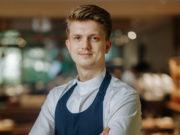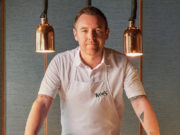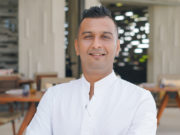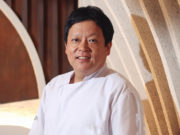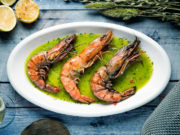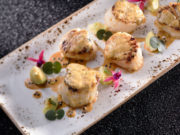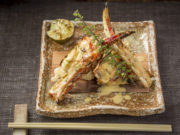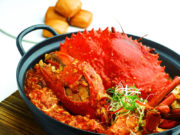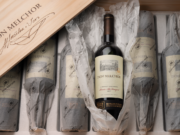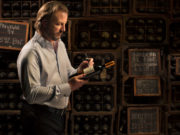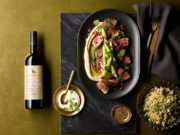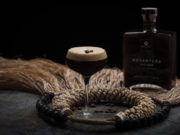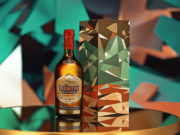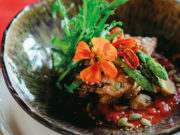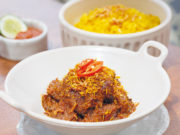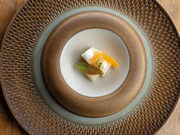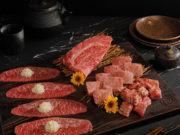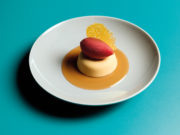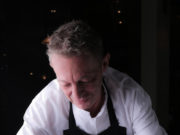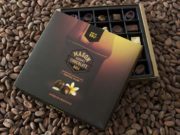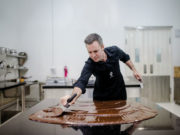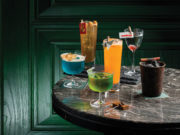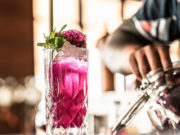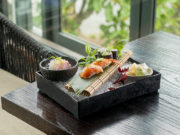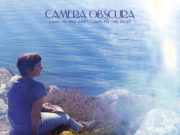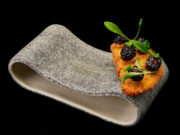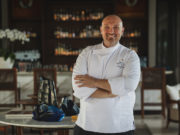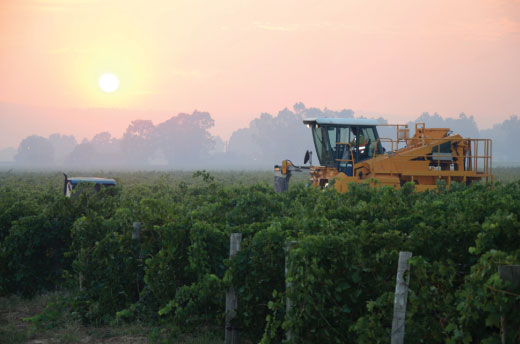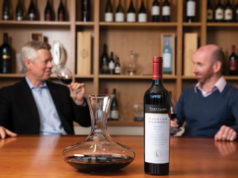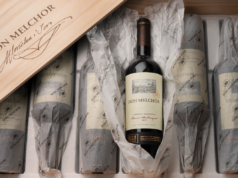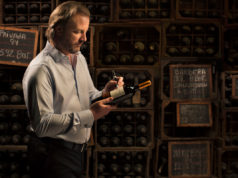Artisan Wine from Artisan Estate
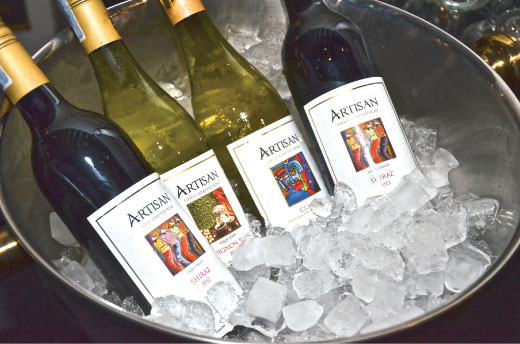
Indonesia’s astronomically high taxes on imported alcohol have left many winemakers with few options: sacrifice the quality of a wine by using imported frozen grapes or substandard Indonesian grapes, or simply import the alcohol and face taxes of around 300%.
That’s where Craig and Noela Newton decided to step in. They are the brains behind Bali’s Artisan Estate winery, where boutique wines are meticulously nurtured to Australian standards – without the hefty price tag.
How did they do it? Well, Craig Newton, award winning winemaker and Chief winemaker at Artisan Estate, spent years researching and developing a very specific – and very secret – temperature to import alcohol-free, fresh wine grape juice into Indonesia, without affecting the quality.
Now, with over twenty years of experience in the wine industry between them, Craig and Noela have taken Indonesia by storm with their boutique range of Artisan wines.
Exquisite Taste: What’s the story behind Artisan Estate?
Craig: In 2001 at a winery in Western Australia, my boss and I were approached with a concept: take fresh wine grape juice out of Western Australia and bring it into Indonesia, without compromising on freshness and quality. It might sound simple, but you can’t freeze wine grapes or juice without damaging them. So, I took it on personally to research and develop this concept. At this stage, Artisan Estate, as we know it today, was formerly known as Wine of the Gods, and what they were doing wasn’t particularly working. We saw that the attention to detail just wasn’t there. So, after 5 years of research and lots of trial and error, I finally worked out how to properly make a white wine in Indonesia using Western Australian wine grape juice. It took about 7 years to make a red wine. By 2009, we had realised the potential of what we had created, so we relaunched ourselves as Artisan Estate. Now, 100% under our control, the attention to detail that was required to make a quality wine is now driven by us.
Exquisite Taste: It sounds like a very technical production process, what exactly do you do?
Craig: It is something I have developed myself personally, using temperature as my key element. I don’t freeze, and I don’t use concentrate. It comes down to understanding the grape. Wine grapes all have natural wild yeast on them, which helps to start your ferment. When you bring wine grapes into the winery and press them off, you get your juice, and soon the wild yeast kicks in and starts your fermentation. What I had to allow for was a 3 week transfer stage from Western Australia to Bali, where the fermentation must be put into dormancy using a certain, specific temperature. I’m not freezing the juice, I’m just not allowing the wild yeast to kick in. Then once the juice arrives in Indonesia, we put it into our tanks and we allow it to warm up again. This brings that wild yeast back to life. We haven’t killed it off, we’ve just put it to sleep. I’m using temperature as my preservative, not artificial flavours, colours and all the rest of it. I’m just using nature, to hold nature back. Then once the juice is here, I can let nature come back to life again. After fermentation is complete, what I am left with is a high-quality wine, the same as I would expect in Australia.
Exquisite Taste: So what made you choose Bali, considering the complexities required to produce a low-cost, quality wine?
Craig: After travelling backwards and forwards for many years, we both used to say, “Where can we get a bottle of wine that we can afford and enjoy?” It’s something we saw thirty years ago in Australia, so we could see the evolution that was going to happen in Indonesia. It is a growing nation, developing into a more sophisticated market, and of course, wine comes along with that. We could see that potential growth, and that growth was huge. It’s about being in the right place, at the right time, with the right product. There are some lovely imported wines coming into Indonesia, but they are highly priced due to the alcohol taxes. We bring in pure liquid wine grape juice which doesn’t have alcohol, and therefore it doesn’t attract the imported alcohol taxes. Now we can produce a good Australian wine, but at a local price.
Exquisite Taste: The wine markets in Indonesia and Australia are forever changing. How have you seen and responded to these developments?
Craig: Wine markets will always change. From a winemaking point of view, you need to stay in tune. The Sauvignon Blanc in Australia was booming, however, it’s an emerging market here. Each variety has its highs and lows. Chardonnay is a staying wine. It may drop in popularity, but it never goes away. Our Sauvignon Blanc sales are increasing rapidly, but the Chardonnay is still our most popular variety.
Noela: We keep in touch with our customers and our winemaking friends in Australia, to keep an eye on the trends, the tastes. There is a very emerging wine culture with the younger crowds in Indonesia, so we like new people coming into the market. It gives people that choice, the exposure to new varieties.
Exquisite Taste: One of your philosophies you abide by is “to use the TRUE art of winemaking”. What do you consider this to be?
Craig: Not using frozen products, not using concentrates, and starting with real wine grapes. I would love to support the local grape industry here in Indonesia, but a wine grape needs four seasons to grow, and without those four seasons, you don’t have a wine grape. Then it’s about keeping the process as natural as possible. Allow that wild yeast to come to life. Understand the grape. Good wine starts in the vineyard. That’s why we go back to our vineyards on a regular basis. We watch the growing cycle, the nutrition of the plant, developing taste and flavour profiles as we go. By the time we’re at the ripening stage for harvesting, I have a whole library of flavour information about that one variety. My job as the winemaker is to then extract those flavours out of the fruit. That’s where understanding temperature comes into play again. A lower temperature brings out the citrus. Warmer temperatures bring out the melon flavours. That’s the true art of winemaking, bringing all these flavours together. We work around the clock to ensure we get what we want.
Exquisite Taste: Your four wines – the Classic, the Sauvignon Blanc, the Chardonnay and the Shiraz – are all very different. Which is your favourite?
Noela: For us, it really comes down to what we are eating. It’s about loving our food and wine together. But I have always loved the Chardonnay. It is one of our originals and it just gets better every year. Each year it surprises us. The 2013 is rich and luscious, it’s just beautiful.
Craig: The Chardonnay really is a standout. It hits the mark every time. But yes, the perfect wine changes with what you are eating. I do have a soft spot for the Shiraz though, because it has taken many years of research and hard work. I had to look at the winemaking wheel and reorganise it to enable me to extract the red colour, the body, and the tannins. It was very hard to get it right, many years of trial and error, and Noela saying, “start again and do better”!
Exquisite Taste: So what else really sets Artisan wines apart from other winemakers in Bali?
Craig: Definitely the passion – the heart and soul that we put into it. We’ve been credited for our attention to detail that we put into our products and our services. We’re not just here to make wine, we’re here to enjoy life – and it definitely reflects in our wines.
Noela: As we say to people – taste the difference. It comes down to our true art of winemaking, and our passion to protect what we’ve put our hearts into. There’s a lot of choice out there now, but when it comes down to the quality, I think we’re really hitting the mark.
Exquisite Taste: And finally, what vision do you have for the Artisan Estate in the future?
Craig: We have a five year plan, a ten year plan, and a long term plan. The five year plan we are up on already, and at the moment, the winery is in renovation so that we can deal with the increased demand. If you look at the history going back to 2001, in the three or four years we’ve had the company, we’re now four times larger than what they achieved ten years prior. That is massive growth, which only happens when you have a great product. We want to continue to grow and to continue to please our customers, but we will never compromise on quality.


